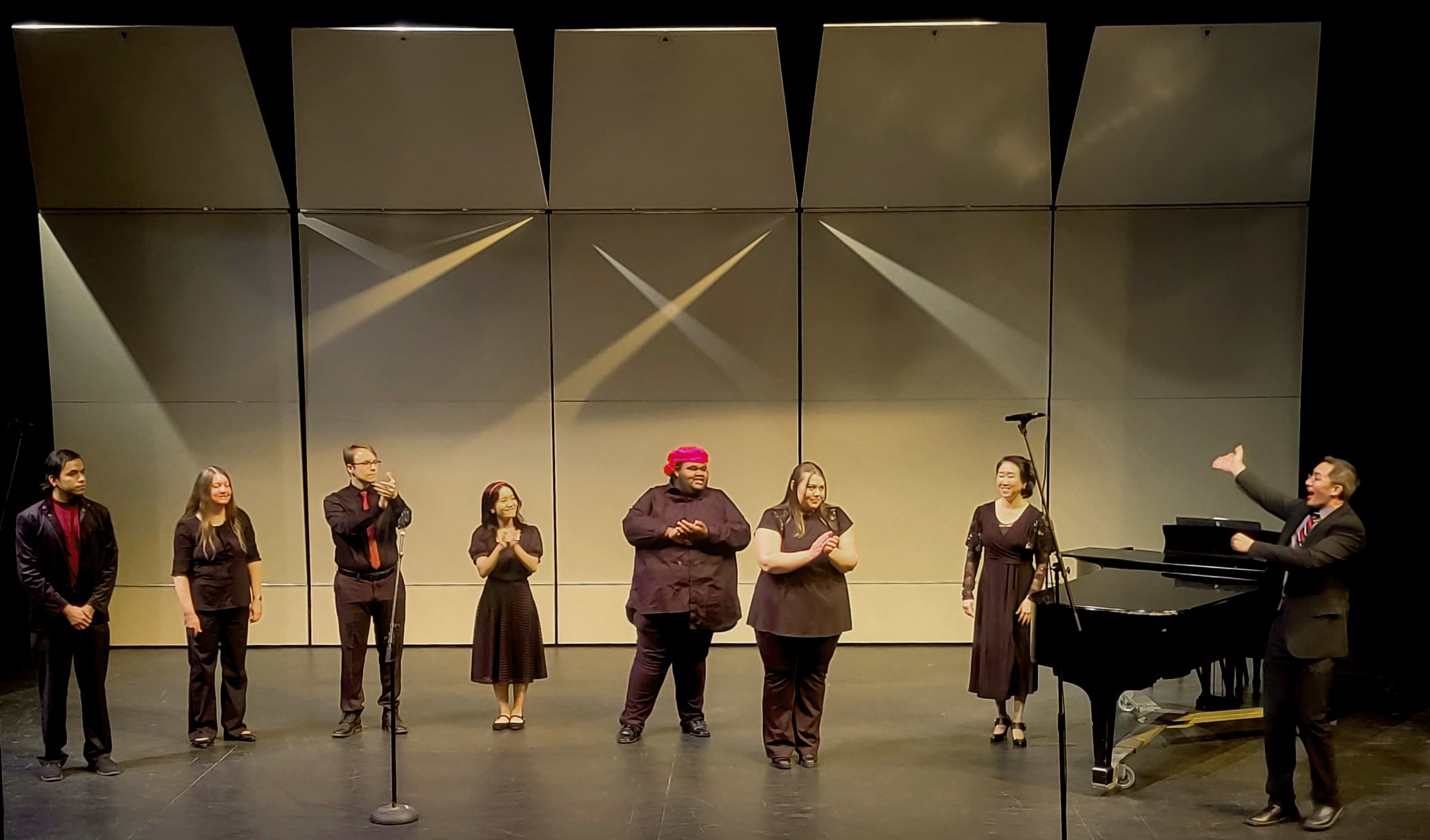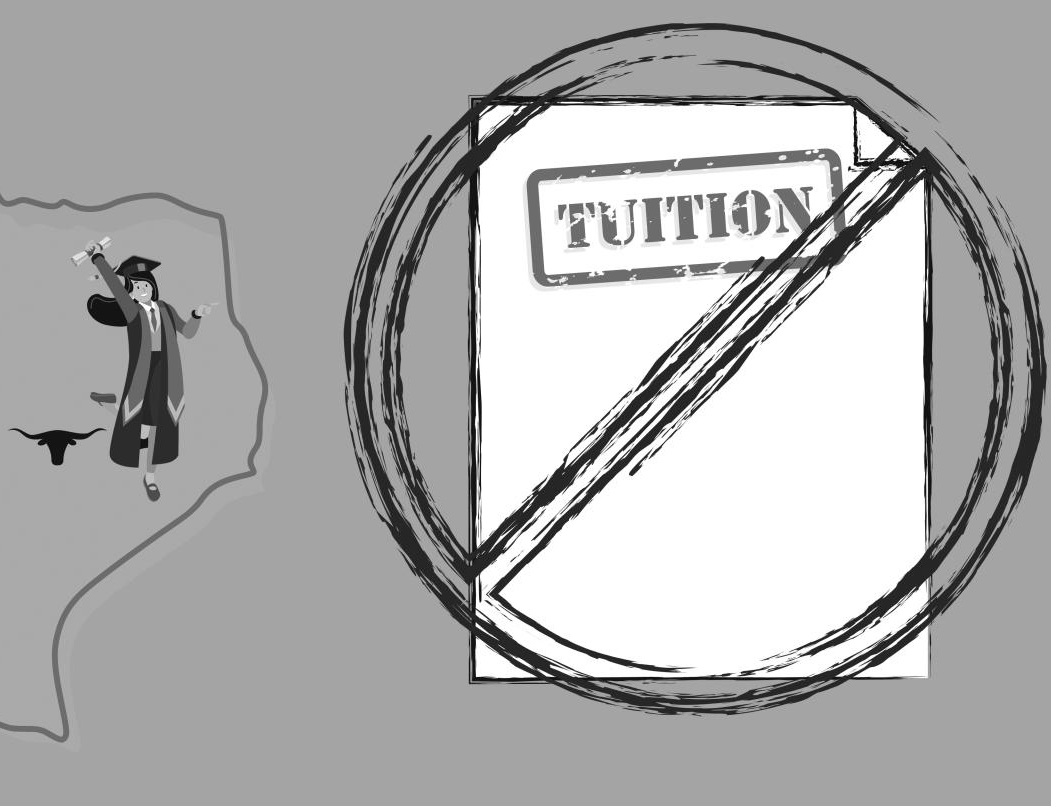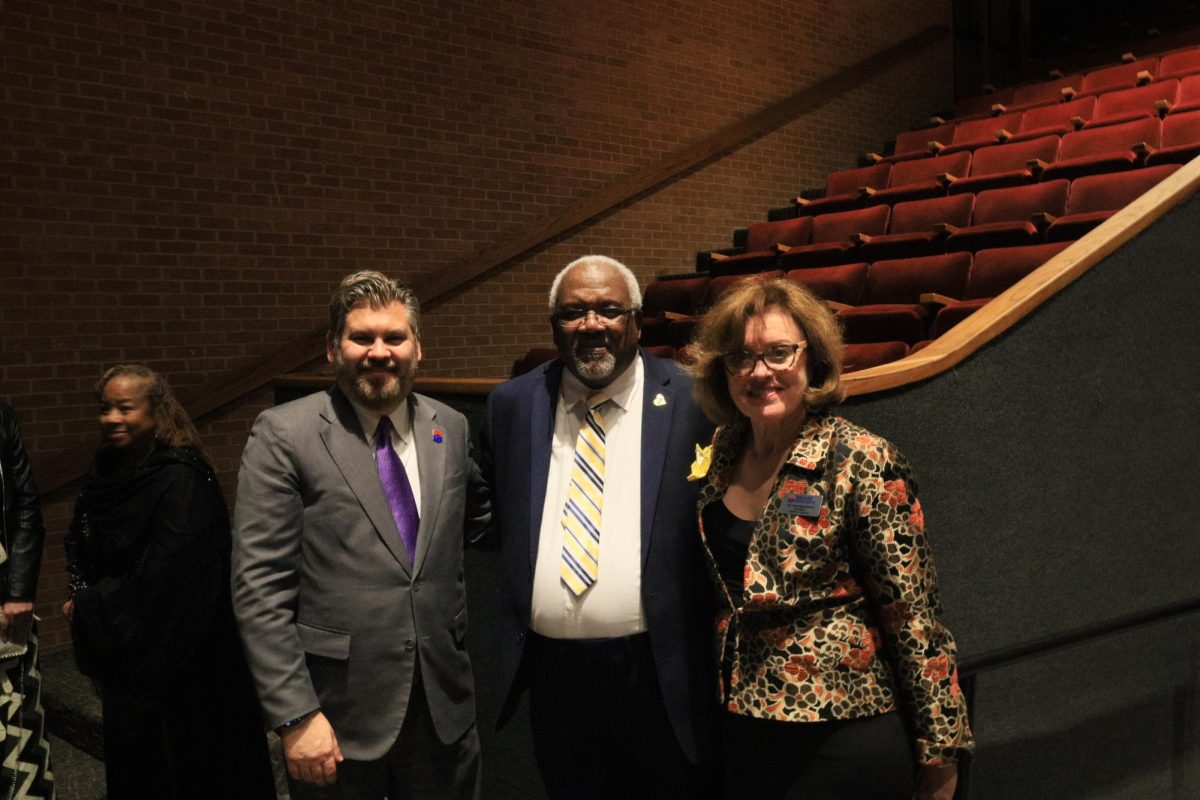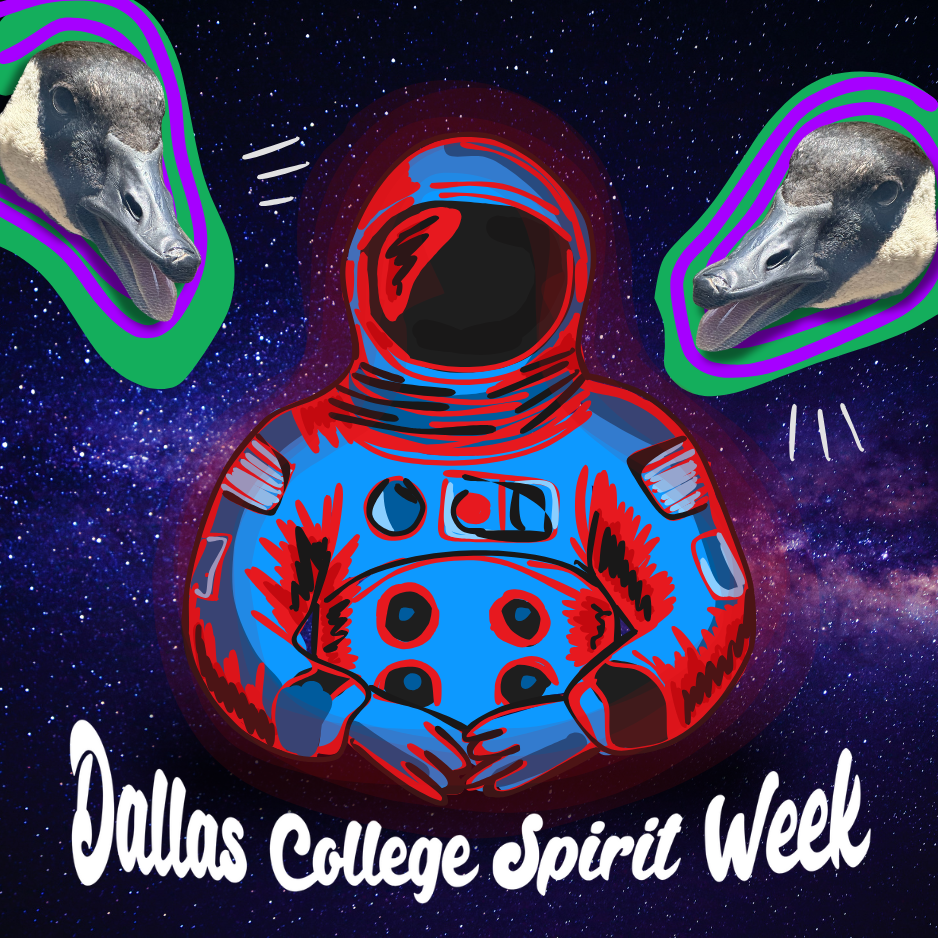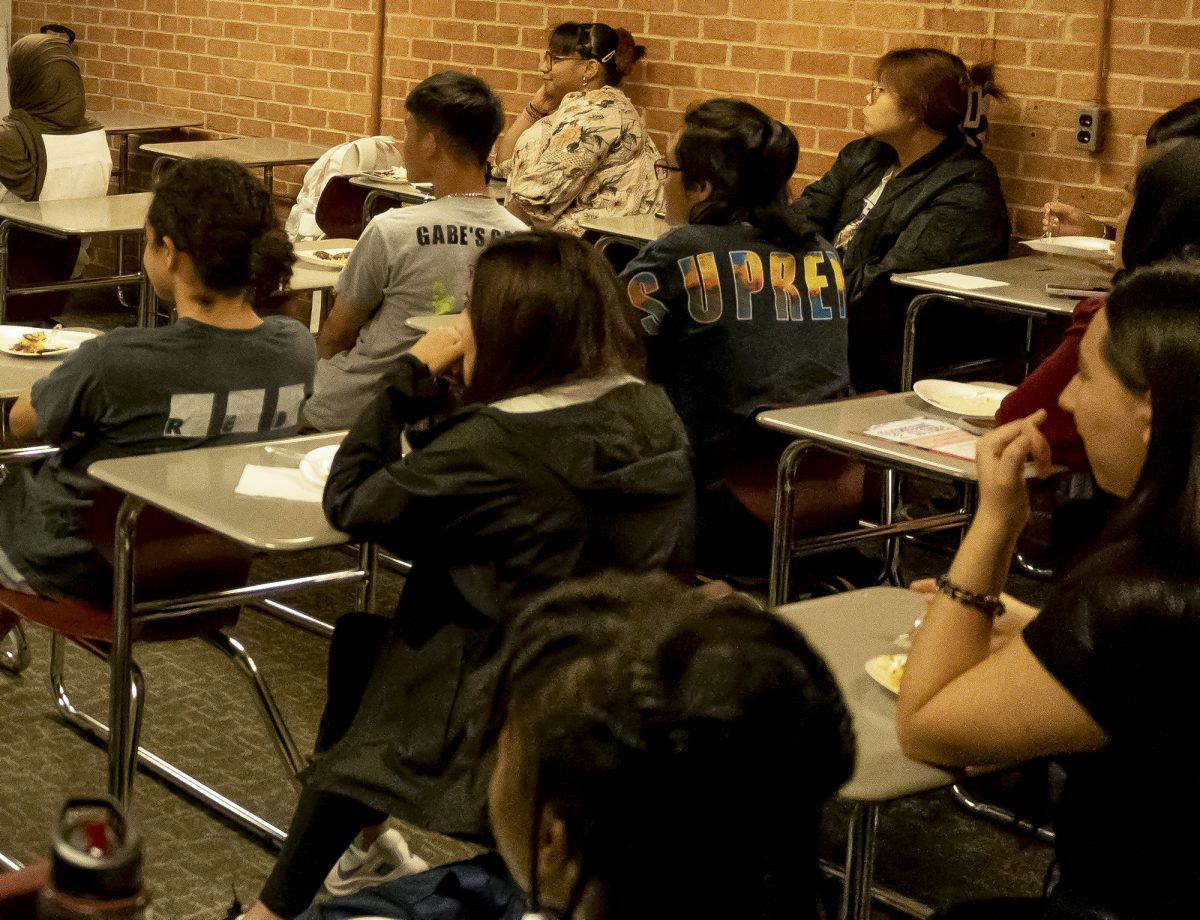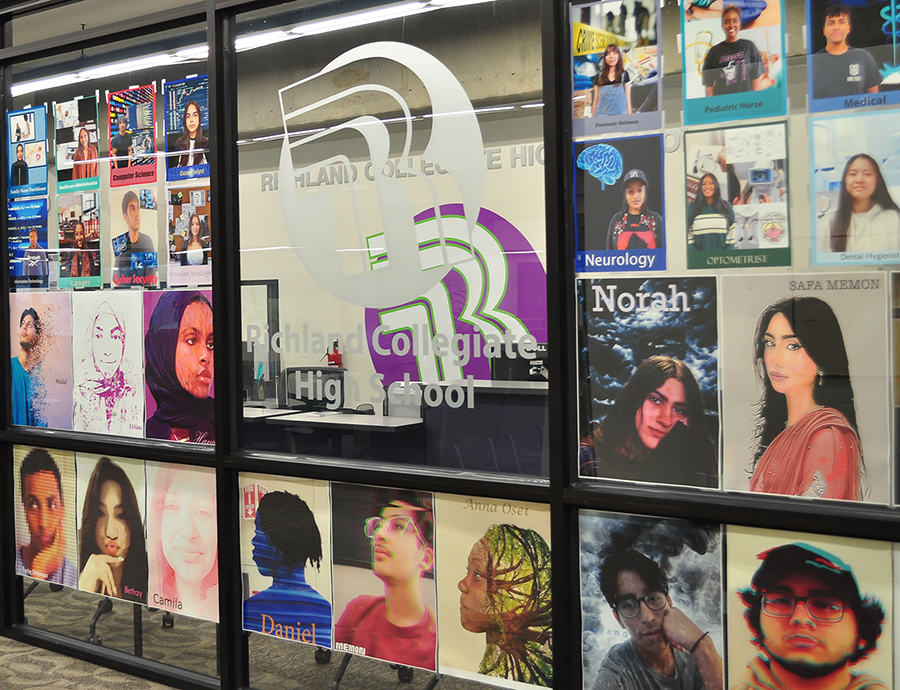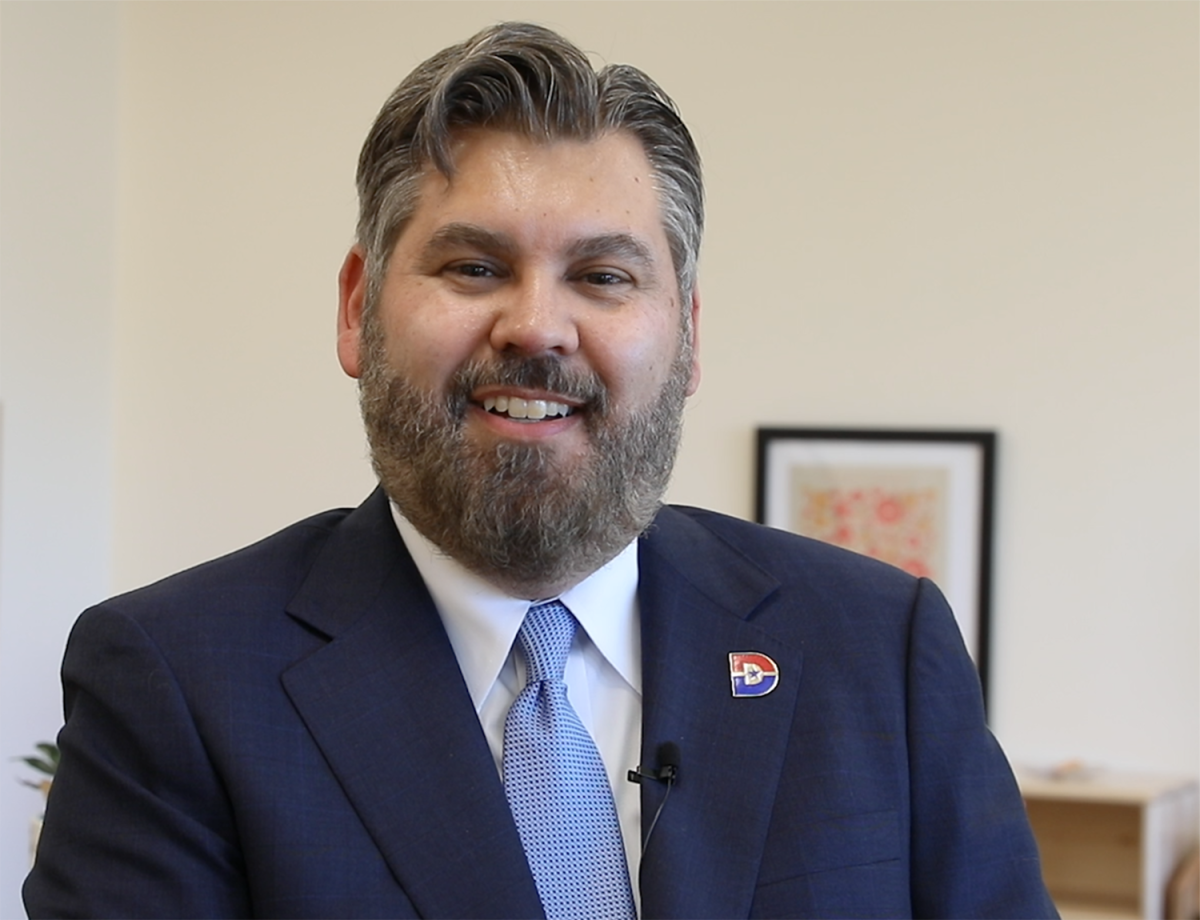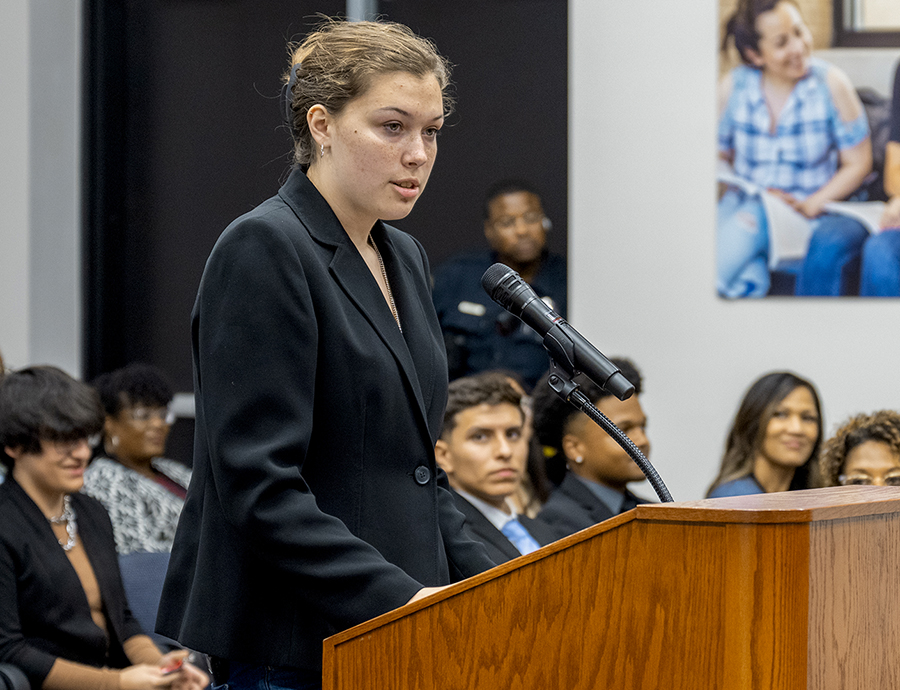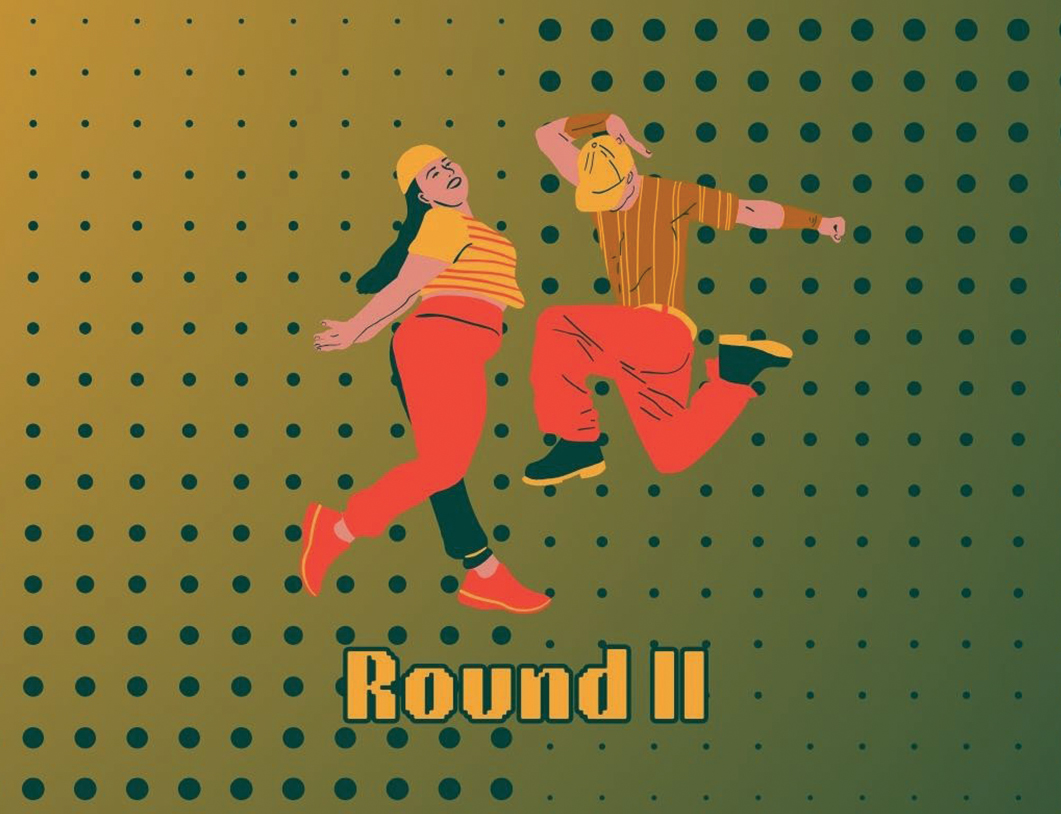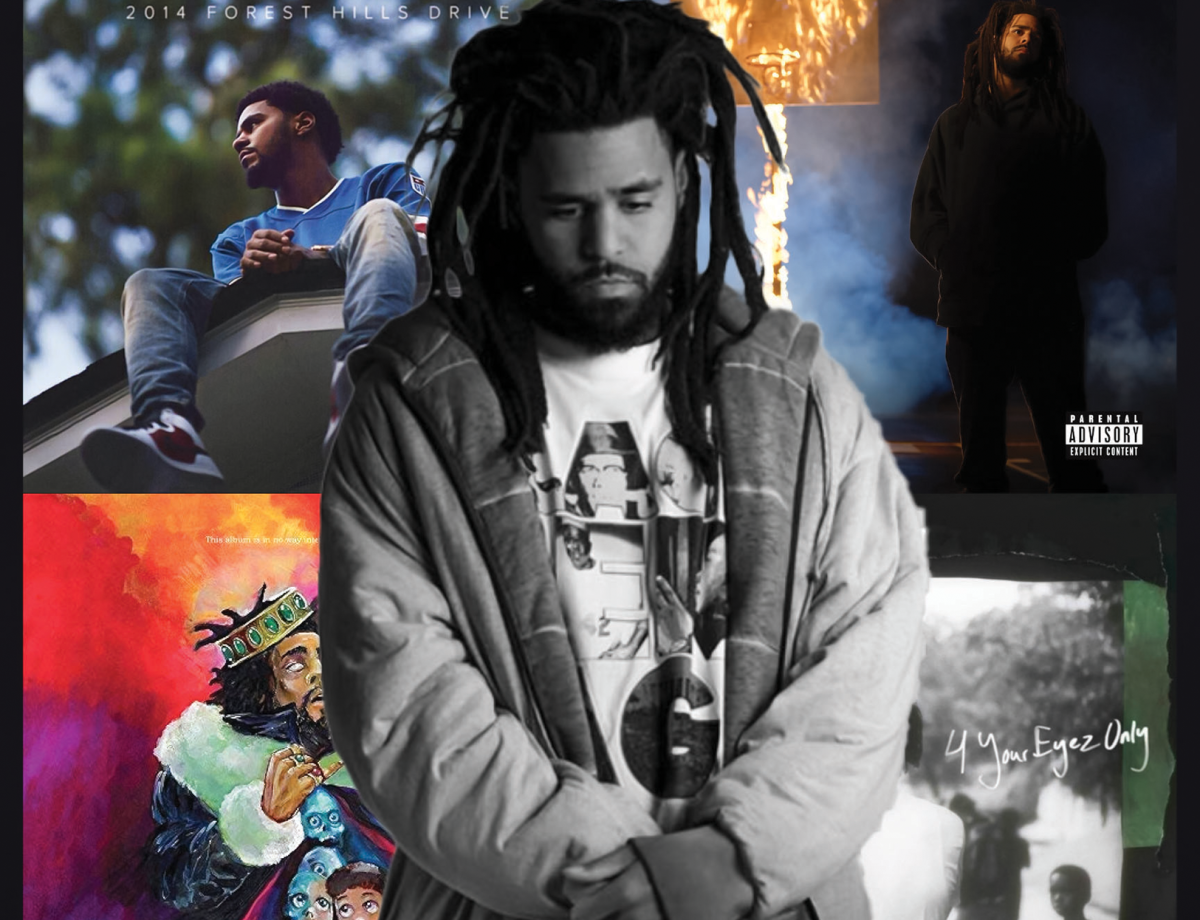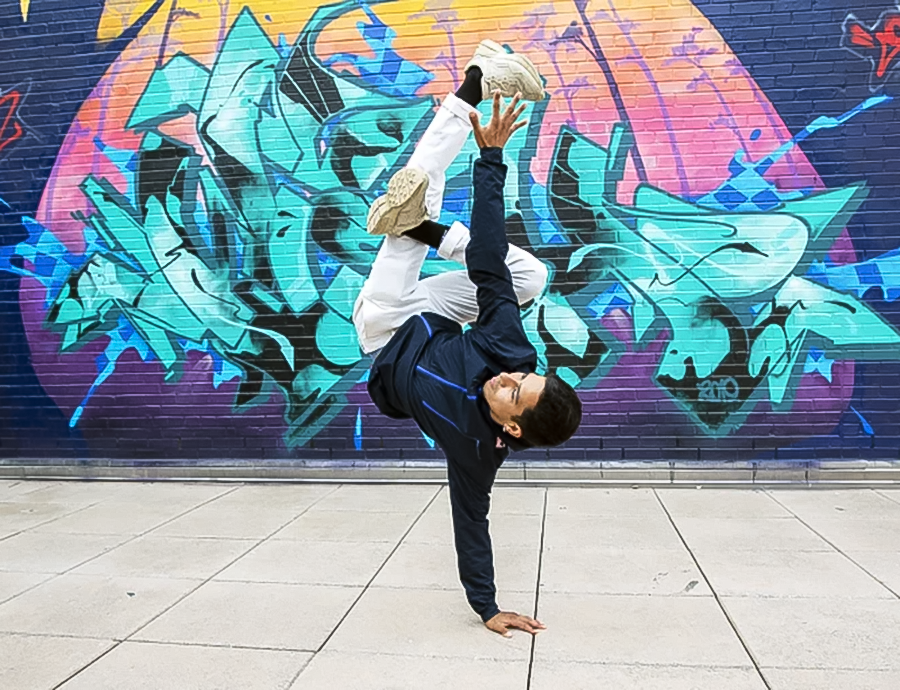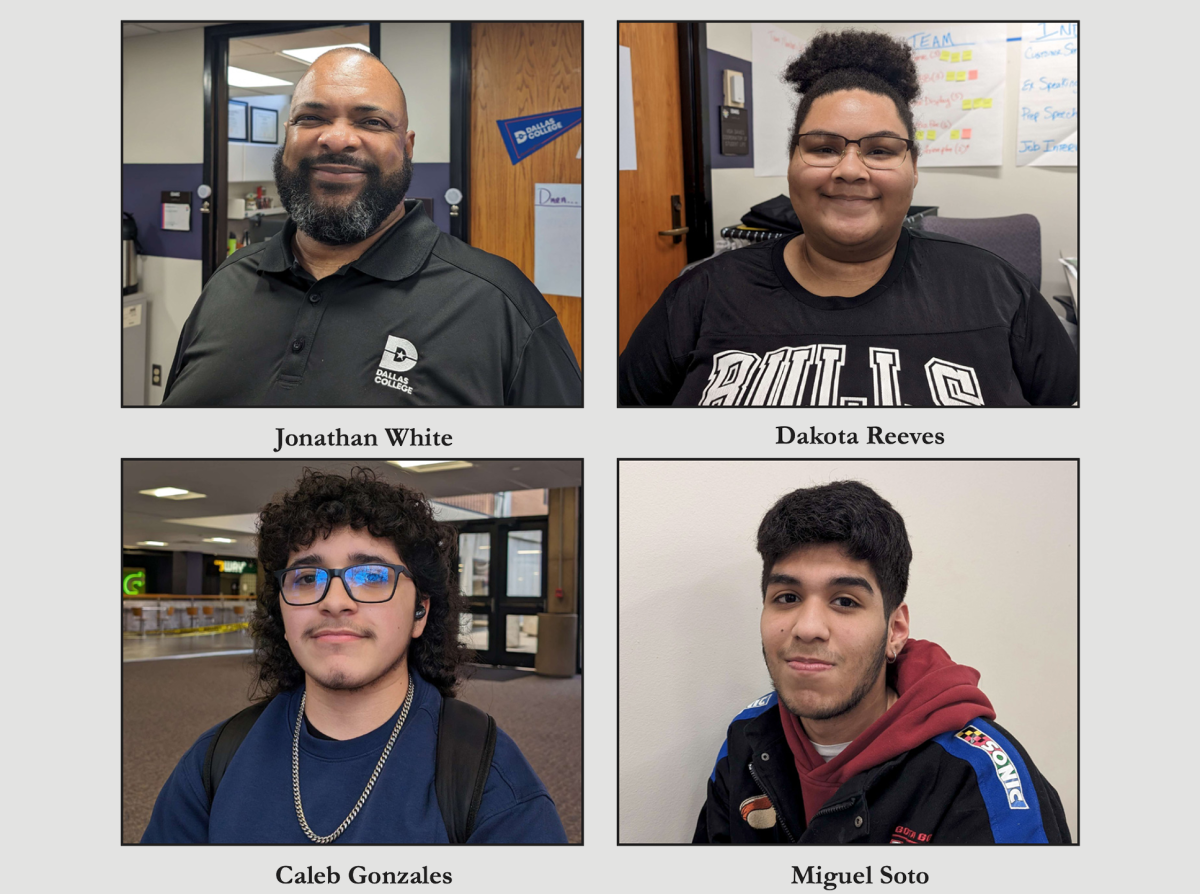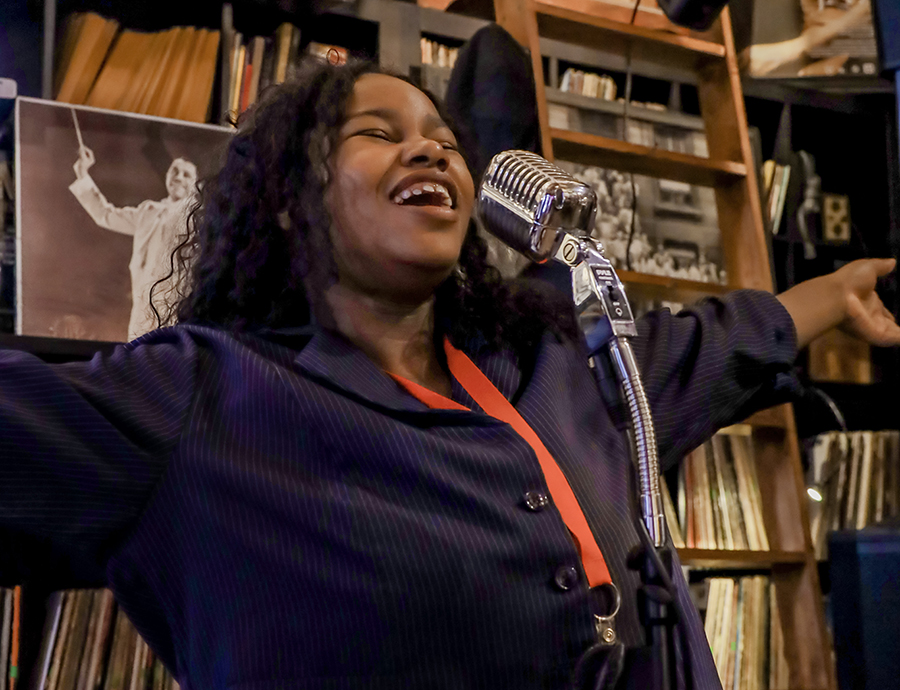Tareakubore Ejovwo-Ottoh
Staff Writer
For over 40 years, Dallas College Richland Campus Music Department has been a nurturing and thriving program that offers a huge variety of instrumental and vocal instructions in performance and theory through music courses. The department is looking to expand its course offerings in the next two academic years with even more options for instrumental, vocal and music theory instructions.
Dr. Abel Rodriguez, a music faculty member, said that while registration is lower than that of 2020, the department is working to build back. “Before the pandemic, I would say that we would typically have between 30 and 40 music majors a year with each semester of new students. While we still feel the impact of that crisis, the numbers of students that are enrolling are getting close to what they were before.”
Director Dr. Andrew Evangelista, Right, introduces performers at the recent Fall Choral Concert. file photo
Professor Magnolia Oliphant, an adjunct music instructor, said the department encourages students to develop and grow in what- ever profession they would like to go into, nurturing the many skills that are required. “In the study of music, the career you want deter- mines your actions. If you would like to be a professional in performing, we would have you put yourself out there so you can make a name for yourself. You would also have to be talented and make connections in the field. You would need to talk to people and make sure they know who you are and how you stand out,” she said.
The Music Department regularly schedules concerts and recitals for the students and general public to enjoy each fall and spring semester in Fannin Hall. Dr. Andrew Evangelista, another music faculty member, said the program puts a sharp focus on students’ development in their vocal and instrumental education, provided they put the work and effort into their learning. The students tend to have a passion for what they’re doing and it requires a lot of time and dedication.
“We really focus on the all-around purpose in being a musician, and not just playing music that’s in front of you. If you can sing or play an instrument, that is good. But we also develop soft skills in professionalism, like showing up on time and communicating with the professors. Learning the importance of respecting everyone’s schedules and the right of an authority figure or even a colleague and friend to say no. Accepting rejection or circumstances as they come. All of these little lessons help students jump into full careers with the right mindset,” Evangelista said.
Rodriguez said it takes more than love and proficiency in music to succeed in this department. There needs to be diligence and a willingness to keep progressing. “To pursue a degree, it requires a certain commitment to developing what you need. The students need to appreciate music and that’s why they’re willing to major in it. Generally, students tend to have a passion for the degrees they are working to get and having the love and determination to have a profession in music to be a solid student in the department.”
Rodriguez said that choosing to pursue music for your education or as a career could not be labeled as easy or hard by any standards. The importance of being able to achieve what you desire will be what will matter in the end and the experience and lessons learned in the music department will be worthwhile.
“From an education standpoint, we offer a range of instrument lessons and will graduate with a deeper understanding of the arts that will help to develop musicians, provided you work for it. As for the overall life lessons to be learned here, the program will provide students with skills that will help them not just in music, but in any field. I have seen people take their interest in music and what they learned from it and apply it to their profession, even when it’s outside of music. Anybody willing and excited about what we have in the music department will be able to accomplish any goals they may have,” he said.


